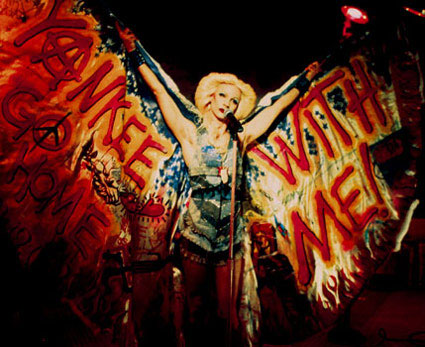The massacre that was perpetrated in Oslo the past July by Anders Behring Breivik has evidenced a growing phenomenon in Europe that is worrying. It´s the sustained rise of the antiestablishment ultra right-wing, or at least its xenophobic and ultranationalist discourse. Not only in Norway, where the Progress Party (where Breivik was part of its ranks for many years) recently obtained 23% of the votes, but in different countries of civilized Europe, we attend an escalated increase of backing received in the polls to organizations that, taking advantage of the consequences of the recession and the way that many conservative parties like the social-democrats seem absolutely incapable of separate themselves a single inch from the solutions imposed by the markets, bankers an qualifying agencies that are responsible in the first place for the economic catastrophe, defend a return to supposed national essences that exclude and proclaim more and more eagerly all the time the need to witch-hunt and scapegoats.

Maybe what´s more worrying isn´t the way that postures that, until recently, common sense would have mostly dismissed as neofascist now obtain the backing of hundreds of disenchanted voters, but the progressive infiltration of their ideas and discourse in conservative European parties that currently occupy power in most of the continent.
The presidents of France, United Kingdom and Germany publicly express their disdain for multiculturalism and behind that there isn´t an anthropological or sociological explanation of the term but a justification for the cutting of rights of immigrants and the persecution, banning and expulsion of large contingents of people with the aim of attracting the vote of those citizens that they fear will vote those parties to their right.
The interesting paradox is that the rise of the extreme right-wing parties obeys the fact that they offer to the more underprivileged classes the hope of a more social state for those chosen, as a difference to the neoliberal drift of the traditional right-wing that is taking advantage of the financial recession not to refund capitalism and go back to regulating market economy in an equitable way, but to dismantle completely the welfare state, one of the biggest historical achievements of European societies, and convert the middle and lower classes in new types of slaves.
These are hard, ruthless and relentless times to which it´s important to be alert and not to lose memory. That can be helped by walking around the old Spittelmarkt in Berlin and confirm for the hundredth time, when we contemplate the splendid Neo-gothic building of the Juwel-Palais, designed by Max Jacob and Georg Roensch in the last decade of the 19th century and the only building that survived the Second World War in the whole Gertradenstraße street, how painfully difficult it was to mentally reconstruct the important vibrant urban life communications knot that once was the square, in its time one of the oldest market places in the region.
 Paul Oilzum
Paul Oilzum
History teaches us too often how easy it is to erase from the face of the Earth something that took such long periods of time to conform itself. Few cities serve a better purpose to re-read the lesson than the German capital, as anyone who has rented apartments in Berlin in the last seventy years knows well.

 English
English Translated by: aleixgwilliam
Translated by: aleixgwilliam
